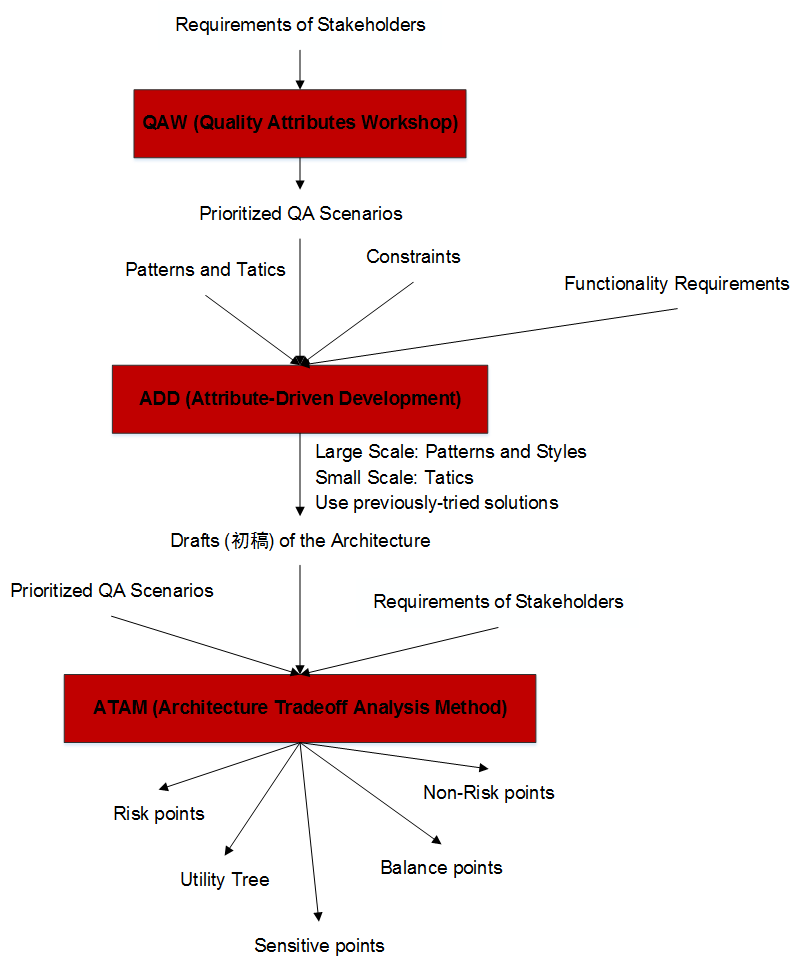TreeviewCopyright © aleen42 all right reserved, powered by aleen42
Modeling and Documenting (建模和文檔編寫) Back
- 基於體系結構開發(Architecture-based development)過程中, 將利用體系結構作為業務的基礎.
- The rise of software architecture has resulted from two trends:
- Recognition of the importance of Quality Attributes.
- The development of Large and Complex systems.
- Large-Scale design decisions cannot be made by programmers, but by architects.
- Have limited visibility and short-term perspectives. (細節的代碼無法把握全局)
- Trained in technology solutions to specific problems. (掌握解決具體問題的技術, 但無法達到特定的質量要求)
- Analyse: decomposing a whole into parts
- Design: deciding how the parts work together
Architecture-based development proccess

Documenting
- 7 principles:
- Write from the point of view of the reader: 根據用戶的角度來寫文檔
- Avoid unnecessary repetition: 避免文檔內容的重複
- 重複可能帶來二義性
- 不易於使用和修改
- Avoid ambiguity: 避免文檔的二義性(可用字典(key, description)來解決問題)
- Use a standard organization: 採用主流模版, 無需部分空著不寫
- Record rationale: 提出理論基礎來保持文檔的合理性
- Keep documentation current, but not too current: 不要頻繁更新文檔
- Review documentation for fitness of purpose: 查看所寫文檔是否合乎初衷
- 從不同視角, 不同顆粒度看系統會看到不同的結構.
- 4+1 View: 用於從不同的視角去描述一個軟件系統(結合UML圖)
- Logic View: 系統的抽象描述(Class Diagram, Object Diagram, State Diagram, Interaction Diagram)
- Process View: 系統的業務過程(Activity Diagram, State Diagram, Communication Diagram, Sequence Diagram, Timing Diagram, Interaction Overview Diagram)
- Development View: 系統的組織關係(Package Diagram, Component Diagram)
- Physical View: 系統的部署(Deployment Diagram)
- Use-case View: 系統的功能描述(Use-case Diagram)
- Responsibility for different people:

- UML(Unified Modeling Language, 統一建模語言)
- No Concept of Layer
- the De Facto standard language
As the plugin is integrated with a code management system like GitLab or GitHub, you may have to auth with your account before leaving comments around this article.
Notice: This plugin has used Cookie to store your token with an expiration.